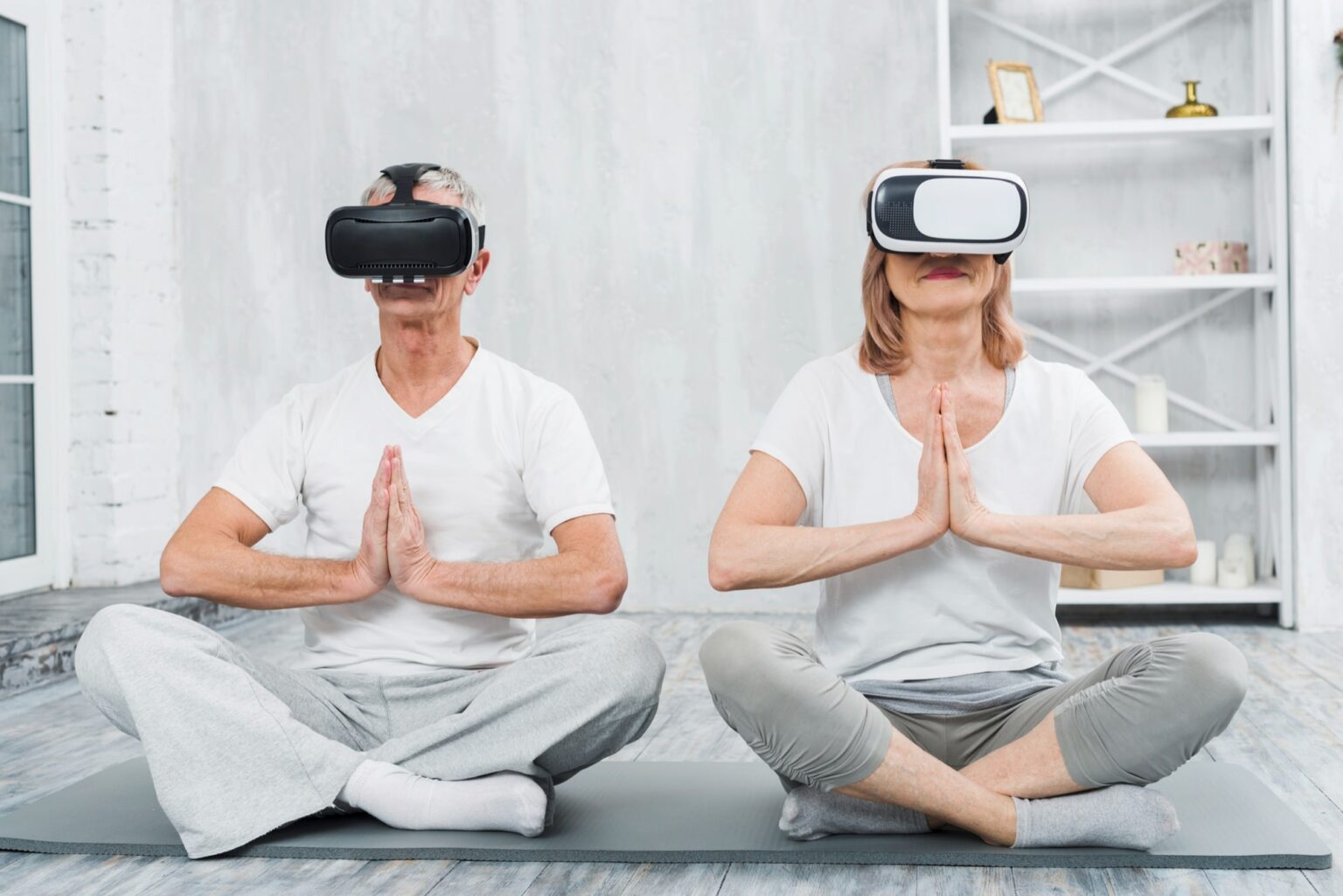AR (Augmented Reality) and VR (Virtual Reality) technologies are increasingly being utilized for therapeutic applications and stress reduction in the field of mental health. These immersive technologies offer unique opportunities to create controlled and immersive environments that can aid in various mental health interventions. Here’s how AR/VR is being used for mental health:
- Exposure Therapy: AR/VR can be used in exposure therapy to treat phobias, anxiety disorders, and post-traumatic stress disorder (PTSD). By creating virtual simulations of feared situations or traumatic events, individuals can gradually and safely confront their fears in a controlled environment. This allows therapists to guide patients through exposure exercises, helping them reduce anxiety and overcome their fears.
- Relaxation and Stress Reduction: AR/VR environments can be designed to promote relaxation and stress reduction. Virtual environments that include serene nature scenes, calming visuals, and soothing sounds can help individuals manage stress, anxiety, and improve overall well-being. These environments provide an escape from daily stressors and offer a safe space for relaxation and mindfulness exercises.
- Mindfulness and Meditation: AR/VR technologies can facilitate mindfulness and meditation practices. Virtual environments can be created to guide individuals through meditation sessions, providing visual and auditory cues to support relaxation and focus. These immersive experiences help individuals develop mindfulness skills, reduce stress, and enhance self-awareness.
- Distraction and Pain Management: AR/VR has been utilized as a distraction technique in pain management. By immersing patients in engaging and interactive virtual environments, their attention can be diverted from physical pain, reducing the perception of discomfort and enhancing pain management strategies. This can be particularly beneficial in medical settings, such as during procedures or rehabilitation.
- Social Skills Training: AR/VR can aid in social skills training for individuals with social anxiety or autism spectrum disorders. Virtual simulations can provide a safe and controlled environment to practice social interactions, communication skills, and emotional regulation. This technology allows individuals to gain confidence, receive real-time feedback, and develop social competence in a supportive virtual setting.
- Cognitive Rehabilitation: AR/VR is being used in cognitive rehabilitation for individuals with cognitive impairments resulting from brain injuries or neurological conditions. Virtual environments can be designed to provide cognitive stimulation, memory exercises, and attention training. These immersive experiences promote neuroplasticity, helping individuals regain cognitive functions and improve their quality of life.
- Therapeutic Storytelling: AR/VR can be utilized for therapeutic storytelling, allowing individuals to create and interact with personalized virtual narratives. This form of narrative therapy can help individuals explore and express their emotions, process traumatic experiences, and gain insights into their personal stories. Virtual storytelling provides a unique and engaging therapeutic tool for self-reflection and growth.
- Virtual Support Groups and Therapy Sessions: AR/VR technologies enable virtual support groups and therapy sessions, breaking down geographical barriers and providing access to mental health services from anywhere. Virtual environments can create a sense of presence and connection, allowing individuals to engage in group therapy, receive counseling, or participate in support groups remotely.
AR/VR technologies have the potential to enhance traditional mental health interventions, providing immersive and effective tools for therapeutic applications and stress reduction. By creating controlled and immersive environments, these technologies offer unique opportunities for exposure therapy, relaxation, mindfulness, social skills training, and cognitive rehabilitation, among others. The continued development and adoption of AR/VR in mental health hold promise for improving mental well-being and expanding access to mental health services.



